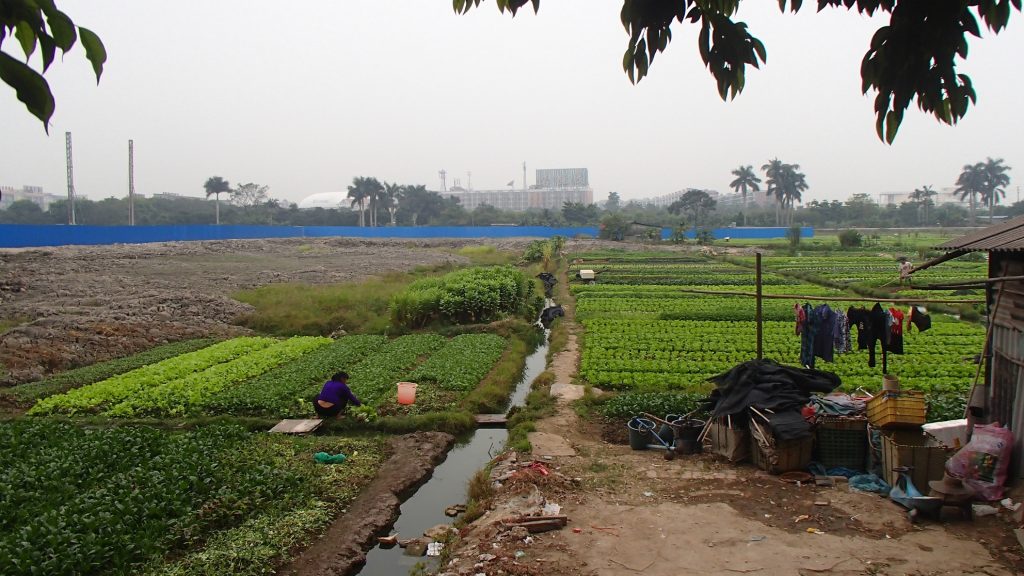The Chinese Migratory Phenomenon
The Chinese Spring Festival is over. Everyone from the countryside is streaming back into Guangzhou city to return to their jobs. A noticeable influx of luggage carted by loud relatives returning from Guangzhou to the countryside became more visible. The metros are more packed today.
I am frustrated with these people, thinking, “I don’t want you all back in Guangzhou. You are going to make it shit again.”
Then I thought, “I have good friends that do the same thing, coming back from their countryside hometown. They are nice people. I can’t put them into the same category as every other one of these uneducated Chinese people that are coming back into the city to work.”
So, I had to back away from feeling stressed out about this situation.
I began to think, if a Westerner just arrived to China and experienced this, they would be bewildered.
A second-year Westerner in China would be able to better understand the reasons. A third-year Westerner in China would begin to feel like a Beijing, Shanghai, or Guangzhou local. But this migratory phenomenon distinct to China – for so long as country people continue to find tried-and-tested ways to improve their lives – will never cease.

Australians Born In The City, Retire In The Country
On the other hand, this phenomenon would never happen in Australia, because even Australian country people are civilized. You would never get all the people from the farms and the countryside suddenly all in one big bunch wanting to come to Sydney in droves, to wreck the joint with their backwardness.
The trend in Australia is that Australian people become country folk because they have lived in the city, have grown up in city areas, and spent their whole adolescent career in some great, educated job, such as law or IT. Then one day they decide, “I am going to retire.”
They soon get bored of retirement, and figure, “I will go out into the country onto a farm. That is a great retirement.”
The labor costs to buy farm equipment also runs in the hundreds of thousands in Australia. There is no one picking strawberries by hand and tilling the ground with hand-pushed rakes, as one would see in China. Farms in Australia are an investment.
That is how some people in Australia retire.
Young people, conversely, never go to the countryside. It is always retirees who need a sea change or a countryside change who think, “I have had too much of the city.”
These experienced people have already had the culture that comes with the city, take it to the country, and get to be more relaxed people in the country. So, even if the Australian countryside people came into the city all in one bunch, they would not be displaying any overtly vulgar traits that city people don’t have. They won’t be spitting everywhere, for example. They will be driving around in nice cars.
There will be no real discernible difference, except for their personalities being much more laid back than a typical Australian.
Chinese Born In The Country, Toil In The City
But in China, if you were born in the countryside, you were born in dirt, born in poverty, born with six children in your family, born with poor parents who have debts, born with having to till the ground, born having to think that you have to go to the city to work for a living to bring the money back to the countryside to pay family debts.
I have many friends who have come to Guangzhou to do this.
The Chinese migration phenomenon and Australian countryside change tells of a massive difference between opportunities and the education levels of the country people in Australia compared to the education levels of the country people in China.
Country folk in China are uneducated mostly, because they were born on the land. They were born poor. Whereas the Australian country folk were born in the cities, and then they adopted the countryside in their later life for retirement.


Diary Of A Mad Chaos is a daily diary written from March 1996 until today, of which individual books and book series have been created, namely “The Lost Years” an exploration of young, entwined love, the “Wubao In China (猎艳奇缘)” book series which provides an extensive comparative analysis of the cultural differences between Eastern and Western societies, and the book titled “Foreigner (华人)” an exploration of race relations in Australia.










